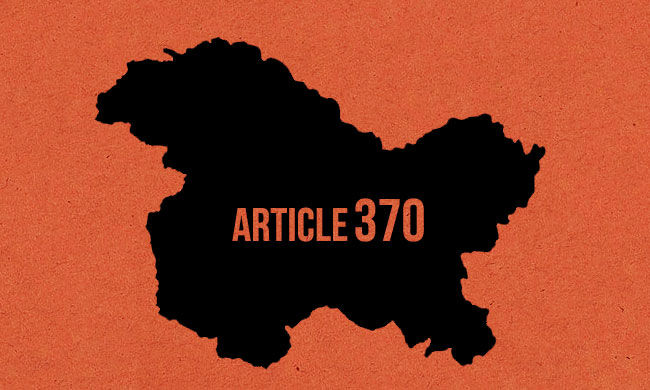 Image courtesy: Sabrang
Image courtesy: Sabrang
We would like to register our strong disagreement with the decision of the Bangalore International Centre to hold this event, titled “Jammu & Kashmir: The Way Forward.” We are an informal group of citizens – some members of the BIC, some not – who have come together because of our deep reservations about the very premise of this event, the tagline of which asks, with no sense of irony, “What must India do to make the post Article 370 world a better place?” The BIC maintains that it is a “neutral” space that provides a forum – open to the public – for bi-partisan debate and discussions where different points of view can be heard. If that is indeed the case, we cannot understand how it can associate itself with this event.
The abrogation of Article 370 in an undemocratic manner, without any consultation with the people of Jammu and Kashmir and related developments is a highly contentious matter on which opinions are deeply divided even outside Jammu & Kashmir. In addition, the blackout of communications and the lockdown preventing free movement of people and goods, including essential medicines, which has now lasted six weeks, has deprived close to 70 lakh people of any semblance of normal life. Heart-breaking stories of the havoc the situation has caused in the lives of so many ordinary Kashmiris, including children, abound. The continued detention of mainstream political leaders (including former chief ministers), the so-called preventive detention of thousands of Kashmiris, including business leaders, human rights defenders, elected representatives, journalists, teachers, and students as young as 14 makes it clear that even the government of India believes the situation is far from normal. Under the circumstances, how can the very first event being held in the BIC to discuss the developments of August 5 and thereafter be premised on the assumption that the post-abrogation scenario is a fait accompli that need not, cannot and must not be questioned? And that all that remains is for “the Indian government and civil society” “to manage the political, social and security consequences arising from the move”?
What justification is there for an event that does not include a single Kashmiri or anyone who has taken a public stand against the abrogation of Article 370, or anyone who has reported from the ground on the reality of the current situation in Kashmir? We won’t even get into the acceptability of manels—and this is a non-Kashmiri, upper-caste all-male panel—in this day and age. If the BIC stands by its claim that it is committed to genuine, non-partisan debate that enables multiple, diverse schools of thought to contend, it must not associate itself with events like this one which promote an unquestioning, unilateral approach to current events.
Signed,
Kirtana Kumar, actor and director
Amandeep Sandhu, author
Darshana Dave, arts professional
Karthik Venkatesh, editor
Sharmadip Basu, academic
Arundhati Ghosh, arts professional
Shamya Dasgupta, journalist
Arijit Sen, journalist
Sharda Ugra, journalist
Ajitha G.S., editor
Ammu Joseph, author and journalist
Amarinder Kaur, activist
Laxmi Murthy, journalist and author
Shahid Ansari, social entrepreneur
Varuni Bhatia, academic
Sreyashi Dastidar, communications professional
Asim Siddiqui, academic
Mohan Rao, scholar
Rohini Mohan, journalist
Rajesh Umadevi Srinivas, activist
Anirudh G, human rights activist and social worker
Azmat Ali Mir
Raksha Kumar, journalist
N Jayaram, journalist
Bhupendra Yadav, academic
Sriparna Roy, content creator
Madhu Bhushan, activist
Apoorva G, activist
Navroze Contractor, film-maker
Abhishek Majumdar, theatre maker
Prof. Srikanth Shastri, scientist
Fathima Hussain
M Rashmi
Yolmo Aqi
Shaheen Shasa
Mercy Kappen, activist and facilitator
Prof. Sharath Ananthamurthy, scientist
Prof. Vinod Vyasulu, economist
Lakshmi Karunakaran, educator
Namita Aavriti, writer and researcher




